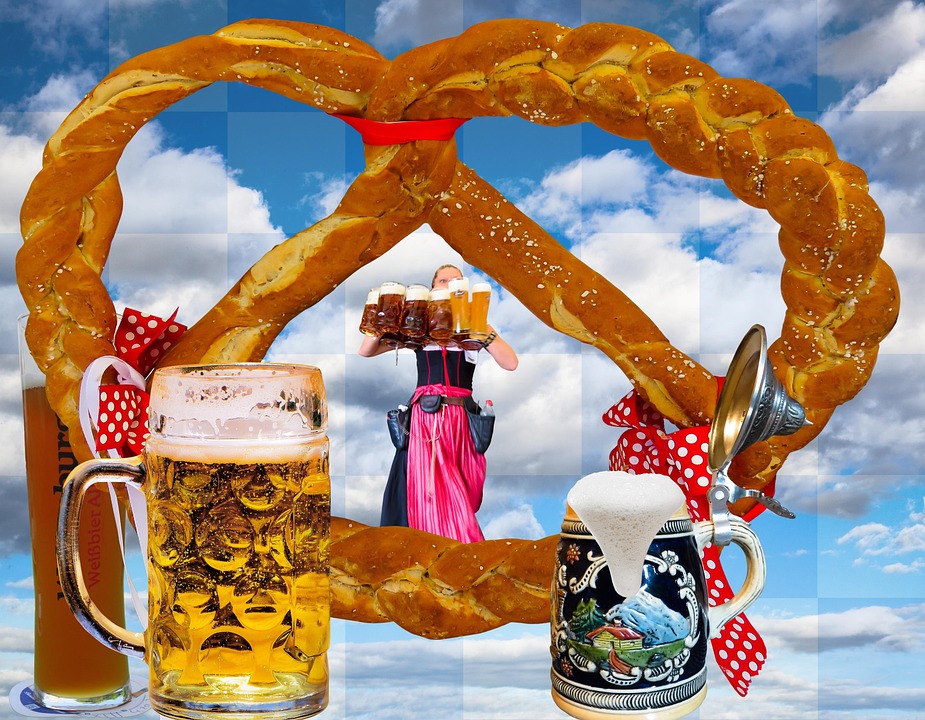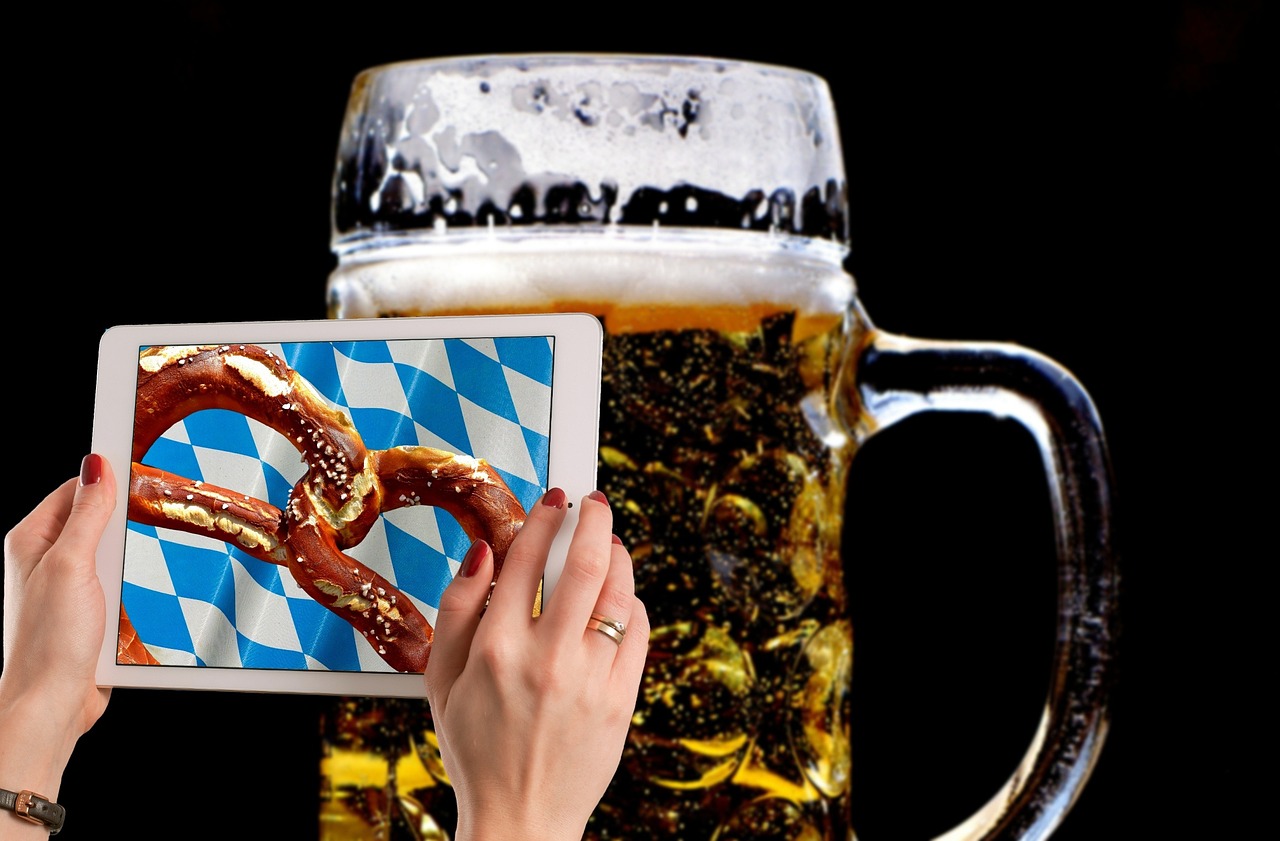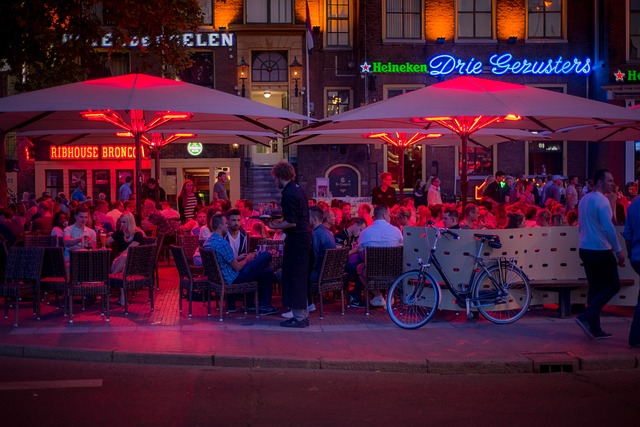There are some German stereotypes that we have heard so many times and may even be tired of them. When we talk about “what is Germany known for”, the answers are various and can be different from people, such as cars, beer, sausage, industry, leather goods, and more. If we think of the German stereotypes, most of the answers will probably be very consistent! So in this blog, we’d like to discuss some common German stereotypes.
Before we start, however, it is important to emphasize that these German stereotypes are not a comprehensive representation of what these regions really are. They only reflect to some extent some of the German characteristics. Germany is a multicultural and fanscinating country, and each region has its own unique charm and diversity!
What Do German People Look Like?
Let’s discuss a very interesting topic in the first part: what do German people look like? Or what are the German physical characteristics? Just like any country in the world, Germans have various stereotypes about people from other parts of the country. For example, Besserwessi (self-righteous West Germans) refers to East Germans’ dissatisfaction with West Germans’ arrogance, while Jammerossi (complaining East Germans) expresses West Germans’ ridicule of East Germans who always complain about life.
Bavaria: Rednecks in lederhosen?

In the usual stereotypes, the image of Germans is often equated with Bavarians: Germans like to wear leather pants and eat sausages while drinking beer. And the stereotypes foreigners have of Germans largely mirror the stereotypes most Germans have of Bavarians: leather-shorts-wearing, dialect-ridden hicks who like to show off their own “free state” status and refer to everyone else in Germany as Prussians.
In fact, this is only part of Bavaria’s rich culture. Bavarians retain many traditional customs, such as wearing traditional Bavarian costumes and celebrating Oktoberfest. In addition, Bavaria is the center of German Catholicism, which is in sharp contrast to other Protestant-dominated regions in Germany. But Bavaria also has modern cities and developed industries, like Munich, which is the headquarters of world-renowned companies such as BMW and Siemens.
Berlin: A Capital of Freedom, Art and Something a Little “Alternative”

If you’re looking to break into the capital city of Berlin, then there’s a good chance you’ll hear some of the distinctive Berliner accents at the Eckkneipe (corner bar) – Berliner Schnauze. For example, gut (good) is said as “yoot” while Ich (ish) is said as “icke”; “das” is said as “dat”, etc. To people from the rest of Germany, the very few “Urberliners” (Berlin’s original locals) are seen as very rude, loud and a bit cheeky.
Hamburg: Cold Hanseatic and Luxury Mercedes-Benz
Like most North Germans, the stereotype of Hamburg is that they are as cold as the wind blowing from the North Sea. Some say that this coldness of the Hanseatic people is because they are rich. To many Germans, the Hamburger way of life goes something like this. When you’re in Hamburg’s ropey Reeperbahn (Germany’s largest red-light district), digging into your pockets to get money to buy a beer to drink, you might find yourself splattered with mud and water by a shiny Mercedes that speeds by.
Due to their proximity to the coastline, Hamburgers also have some peculiar habits: while the rest of Germany is gorging on pork, Hamburgers prefer to eat juicy fish heads. Not only that, but some Germans would think that Hamburgers talk like pirates.
OK jokes aside, the people of Hamburg are also warm and hospitable. They love their city and like to enjoy water life and food. The port of Hamburg is not only an economic lifeline, but also a good place for citizens to relax.
Ostfriesland (East Frisia) - A Knowledge Desert
“Why do East Frisians drive tanks to feed sheep?” “Because they don’t know that the Second World War is over!” This is one of the many jokes people use to make fun of East Frisians.
Friesland is located in the coastal area of Lower Saxony in northwestern Germany. The area is divided into East Frisia, West Frisia (now the Netherlands) and North Frisia (now Schleswig-Holstein). For the British, most people in East Friesland live in the intellectual desert of the farm. One of the most famous depictions of this stereotype is the comedian Otto Waalkes, who portrayed the “typical” East Frisian on stage and made jokes about East Frisia.
Saxony and the Former East Germany - Young Cynic & Waiting for the Return of Communism?
People from Saxony and other former East German states are often labeled as “cynics” and are thought to either follow the far right or spend their days waiting for the return of communism. This stereotype may be due to historical factors, such as the political system and social changes during the GDR period.
Although the term “Besserwessi” has disappeared, West Germans still have some negative views of East Germans, thinking that East Germans are hanging around employment centers all day looking for jobs. However, these areas have changed dramatically over time. Although historical influences still exist, the lifestyles and values of local residents have gradually diversified.
Schwaben: the Money-Saving Rich and Cleanup Week
In the southern region around Stuttgart, there is a special group of people – the Swabians. They live in one of the most expensive parts of Germany, but are famous for being frugal and saving money.
According to local cultural curator Frank Lang, before the current affluence, the people of Stuttgart once went through a period of pennilessness. In order to save the last penny, they would try to save as much as possible. Even if something was broken and could no longer be used, they would not spend too much money to buy a new one.
In addition to saving money, the Swabians are also very clean. To what extent? There is a traditional cleaning week in the area. Every time this time comes, all residents in the area will take out their brooms and come out to sweep the streets together.
10 German Stereotypes - Factual or Misleading?

When it comes to German stereotypes, some words have already popped into your mind, right? Punctuality, inflexibility, coldness, bureaucracy, and more. Some are true, while others are based on misunderstandings. Anyway, understanding these German stereotypes can help develop a more nuanced view of German features and Germany people.
1. Germans Are Punctual
Germans are known for their punctuality. This positive stereotype is widely accepted. Germany’s punctuality I think is based on its well-established rule of law regulations. They plan over a long period of time, make a timeline, and then just stick to the timeline. In social life, this can be well reflected in Germany’s public transportation system. German buses have detailed schedules for what time they leave and what time they arrive.
There is a very interesting phenomenon that most older Germans always have a small book called Kalender in their pockets. It is actually a portable calendar with one page for each day. There is a small blank space at the bottom of each page for notes, and weekends, national holidays, and special holidays are clearly marked.
2. Germans Are Aloof and Serious
Germans are often portrayed as aloof and serious, a perception that stems in large part from their high regard for personal space and privacy. In German culture, people tend to keep a certain distance and do not disturb others. However, this behavior is not a sign of indifference, but rather a respect for personal boundaries and is a common social etiquette in German society.
Although Germans may seem a bit serious and reserved in their first interactions, that doesn’t mean they aren’t helpful. In fact, Germans attach great importance to community and collectivity. They often do not hesitate to lend a helping hand when someone is in trouble.
3. Germans Love Mechanical Engineering
The reputation of German manufacturing is based on a very interesting and key point: Do not Trust People. Germans have a deep-rooted concept that everyone makes mistakes and there will be errors, especially in the production process. The Germans’ idea of improving quality is very direct, that is, to use all possible means to minimize the natural influence of people in the production process, and to break down everything into simple operations that can be performed by machines (or people acting like machines).
Germany’s industrial technology is developing more and more outstanding. The leading automotive and engineering companies in the world, such as BMW, Mercedes-Benz, Volkswagen and Siemens. These brands are synonymous with quality, precision and innovation.
4. Germans Are Born Craftsman
Germans seem to be born with a passion for using tools and an unrivaled ability to build homes and repair homes themselves. According to statistics, 94% of Germans have a hammer at home, 84% have a saw at home, and 92% have screws and nuts at home. The Germans have a proverb: build a home with bricks, tiles and furniture, and decorate it with spirit and love. I think this is the reason why German men strive to be model craftsmen in their own homes.
5. Germans Have Strong Logical Thinking
Is this German stereotype true or not? Germany’s national character, language characteristics and thinking habits provide an important answer. German is the most logical language in the world, which gives Germans unrivaled logical thinking ability. Germans are naturally strong thinkers, thoughtful, detail-oriented, hard-working and conscientious, which is the secret of their great achievements in academia, thought and music.
One of the important reasons why Germany has produced so many famous people in the academic and intellectual world is that it established a sound education system at an early stage. They have fully integrated the contents of children’s knowledge learning and ability training, respected children’s love of games and their development in games, and created a free and diversified learning environment for children.
6. Germans Have No Sense of Humor
This is one of the German characteristics that are mostly discussed. Indeed, comedy is deeply rooted in German culture, with a strong predilection for political satire and farce through physical expression. However, in a 2011 survey conducted by the website Badoo.com, Germans were voted the funniest people, reinforcing the widely known stereotype that Germans lack a sense of humor.
This reminds me of a rental experience I had years ago. I used a random online photo of a kitten as my avatar on my rental app, which led my landlady away in Dusseldorf to say, “You’re going to make it so that there’s no trust between the two of us at all. I don’t even know what the tenant who’s going to live in my room looks like!”
7. Germans Love Literature
This German stereotype is absolutely true and right: Germans love reading and literature. On the subway, on a park bench, or in a cafe, few Germans look at their phones. Instead, they read a book. Literary giants such as Goethe and Schiller are known around the world. Literary movements such as Romanticism also took root in Germany. For many foreigners, German literature may not be as famous as English, American or Russian literature, but it also has its own unique charm and characteristics.
8. Germans Stick to Order
For centuries, Germans have been associated with orderliness, as evidenced by the famous German proverb “Ordnung muss sein” (“Order must be observed”).
For example, in Germany, there are very strict regulations for resource recycling; you cannot make noise after ten o’clock in the evening; you cannot cross the road when the light is red, even if there are no cars on the street; if you want to do things in Germany, you must first print out a form and fill it out, then make an appointment with the organizer, and then enter the office when the time is up. If something is missed in the process, or the form is filled in incorrectly, the entire process will have to be repeated – for Germans, these are all “Order must be observed” practices.
9. Germans Are Environmentally Friendly
The concept of environmental protection is deeply rooted in the hearts of Germans. From the trash cans in front of every household in Germany to shopping in stores, and traveling to the pollution-free natural world, all reflect the Germans’ environmental protection concept.
Remember, don’t throw away the empty mineral water bottles! You can some money by taking them to the supermarket.
10. Germans Are Conservative about High Technology
Germany may be known as a highly developed country with many booming industries and great advancements in technology. But in reality, many Germans are quite conservative when it comes to buying new devices. Even today, far from everyone in the country owns a smartphone, and internet connectivity is poor in rural areas, especially. And, due to their extreme emphasis on personal privacy, some Germans are also resistant to emerging technologies such as social media and online payments.
Causes of Stereotyping
1. Personal Experience
The experiences an individual has had through his interactions with some members of a group form the basis for the formation of stereotypes. These experiences may be based on limited interactions, resulting in less accurate or comprehensive impressions.
2. Social Learning
People form stereotypes not only through their own experiences, but also through parents, teachers, textbooks, media and other sources of information about certain groups, which often come in the form of stereotypes and influence individual perceptions.
3. Sociocultural Factors
Sociocultural traditions, values and social structures influence the way in which certain groups are perceived and evaluated. In some traditional cultures, there are inherent prejudices and stereotypes about certain groups.
4. Lack of In-depth Interaction
Individuals who have had little or only negative experiences with a particular group tend to form stereotypes about that group. Such judgments, based on limited or biased information, are often inaccurate.
Study in Germany - Dig True German Types by Your Own
The rigor and meticulousness of the “German stereotypes” are also integrated into academics. This can be seen in the countless top universities in Germany, which attract students from all over the world to achieve their academic goals.
When coming to study in Germany, you’re going to spend the most beautiful and meaningful years in this fascinating country. You will have plenty of time to get to know the German culture, interact with different Germany people, and form German features combining your own experience, which is far more real and persuasive than any hearsay words. In addition, finding accommodation is one of the most important things when you’re going to study abroad in Germany. As a professional rental portal, uhomes.com can be your reliable assistant. You can easily find student accommodation in Berlin, Munich, Hamburg, Frankfurt am Main, and many other popular cities.
Conclusion
A stereotype, although “stereotypical”, is not necessarily “wrong”. It certainly does not apply to “all people”, but it may well apply to “the most people”, or to “more people”. When we say so-called de-stereotyping, we don’t mean to reach completely opposite conclusions, but to see the diversity of the nation.
As we learn more about German stereotypes, we begin to realize that they are often just the tip of the iceberg. In today’s globalized world, we have access to different cultures and lifestyles. German stereotypes may serve as a starting point for us to understand and learn about German culture. But more importantly, we need to look beyond these stereotypes to discover and appreciate the unique values and beauty behind each culture.
FAQ
What are Germans stereotyped as?
Germans are often stereotyped as aloof and unfriendly, serious, environment-friendly, and punctual. Also, they’re very good at engineering, logical thinking, saving money, and repairing their homes. There are many positive and negative German stereotypes, some of which are true.
What are Germans known for?
These things are what Germany is known for: beer, cars, football, bread, sausages, carnivals, castles, and more. Each state has its own unique products, culture and charm
What are the common characteristics of Germany?
German culture has a long history. Education, the arts and the way of life are all strongly characterized by German culture. Germany’s beer, football, sausages, literature, music, and other arts are all its proud features.








